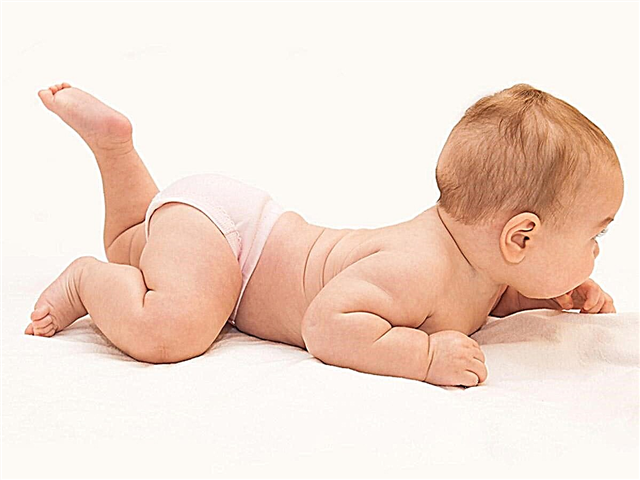
A married couple who are planning to undergo an in vitro fertilization procedure often asks the question, will it be possible to choose the sex of the child during the protocol? This is indeed possible, but with significant application restrictions. We will tell you more about this in this article.

Features:
The gender of babies during in vitro fertilization is formed in the same way as during natural conception. The fundamental difference lies only in the place of conception: with natural fertilization, the meeting of the oocyte and the sperm occurs in the ampullar part of the fallopian tube, and with artificial insemination, the oocytes previously collected from a woman meet with spermatozoa in a laboratory test tube.
The sex of the child is predetermined from the moment the parents' germ cells merge. If female oocytes always have a chromosome set XX, then male cells can be either XY or XX. It all depends on which sperm is the first to get to the egg and make a gap in its reliable protective shell. If sperm XX penetrates first, a girl will be born, and if XY, an heir should be expected.


In vitro with IVF, exactly the same processes occur. Ejaculate added to the egg culture medium creates embryos of different sexes. And theoretically, at the molecular and genetic level, reproductive specialists have the opportunity with one hundred percent probability to determine the sex of the unborn child, the embryo of which is planned to be planted in the uterine cavity, 3-5 days after fertilization in a test tube.
But there is no way to order a baby of a certain gender in our country. The legislation excludes the possibility for parents to spontaneously choose whom they want to bear - a boy or a girl. In November 2011, a federal law was passed that protects and protects the human embryo from gender discrimination.

When does gender matter?
The selection of embryos of a certain sex is possible only if the birth of a child of the opposite sex condemns him to genetic diseases and suffering. There are several rare diseases that are genetically associated with the sex chromosome. For example, a woman may carry the hemophilia gene. If she gives birth to a boy, he will be terminally ill. But if she has a girl, she will be completely healthy.
If a couple has genetic diseases that can be transmitted to a child of a certain gender, then a geneticist, based on the results of research and analyzes, recommends them to a baby of a specific gender. In this case, the IVF protocol will include the determination of the sex chromosomes of the embryos and the replanting of only those of them that meet the requirements of the geneticist.

To plan the sex in the IVF process for religious beliefs (only a boy is needed, because the husband will not accept a girl, etc.), for social reasons (there is a boy in the family, a girl is needed and vice versa), for other reasons in Russia it is impossible in principle ... No self-respecting doctor will go to pre-implantation selection of embryos in order to weed out individuals of the unwanted sex, since this directly contradicts professional ethics and moral requirements.
In some countries, such as Cyprus or Turkey, when planning a pregnancy with IVF, it is possible to ask for a baby of a certain gender. For a fee, clinics go to complicate the protocol and select embryos by gender.
If a couple really wants a son or a daughter and has the necessary financial resources, she may well go to one of the countries where such selection is allowed and do IVF there.

If the in vitro fertilization procedure is carried out on the territory of the Russian Federation, gender selection is excluded both with IVF according to a quota and with a paid protocol. The only exception is the prescription of a geneticist, who established the presence of a genetic pathology that is associated with sex chromosomes.
How is the selection carried out?
It is possible to choose embryos of a certain sex only during pre-implantation diagnostics, during which genetic defects arising from the fusion of germ cells - aneuplodia and translocation, as well as monogenic diseases are determined.
Preliminary diagnosis before embryo transfer is strongly indicated if the woman's age at the time of entering the IVF protocol is over 35 years old, and the man who provided sperm for fertilization is over 40 years old.

If a couple has already experienced two or more unsuccessful attempts at in vitro fertilization, then, with a high degree of probability, the next time a preliminary diagnosis of fertilized eggs will certainly be carried out. Also, preimplantation selection is carried out in the case of severe male infertility, including those associated with complex forms of teratozoospermia (sperm mutations), and in addition, such selection is desirable for women who suffer from habitual miscarriage (have experienced several miscarriages, frozen pregnancies).
Diseases that are considered linked to sex chromosomes, in addition to hemophilia, which was mentioned above, include some forms of muscular dystrophy, hypophosphatemic rickets, pigmented xeroderma.

In total, more than 150 pathological conditions can be determined by preliminary preimplantation diagnosis of embryos. Sex is determined in parallel with the definition of some genetic pathologies that may be associated and linked to the X or Y chromosomes.
In some cases, fertilization is carried out with spermatozoa with a certain sex set - XX or XY. This is done within the framework of ICSI when there are direct medical indications for planning the sex of the unborn child, but it was not possible to obtain a large number of oocytes during ovarian puncture or in the natural cycle.
In this case, reproductive specialists practically do not have the right to make a mistake, they must receive 1-2 embryos of the obligatory sex, which is necessary for a child to be born healthy.

Other planning methods
There are no other exact ways of planning sex in in vitro fertilization. Neither the Chinese tables, nor the methods of blood renewal, nor other methods popular among women give more than 50% probability of "hitting" the point. With any of the planning methods, in half of the cases, boys are born, and in half - girls, no matter what the Chinese or Japanese calendars and blood group tables say about it.

The IVF procedure itself cannot in any way affect the field of the unborn child, since the woman undergoes hormonal stimulation in front of her, and the sex of the child depends 100% only on the man and on no one else.
Statistics from all four decades of IVF use say that the birth of children of both sexes after the procedure occurs with approximately the same frequency. But even here, neither doctors nor scientists can come to a common opinion. British scientists have calculated that when using IVF, boys are more likely to be born (in 63-65% of cases). A little later, Israeli researchers found that in 61% of ICSI cases (the introduction of a sperm, preliminary selected for morphological but not sexual characteristics, with a needle under the shell of the egg), girls were born.

Today's statistics show that when one blastocyst is transferred, boys are born in 55% of cases, if IVF is carried out with a dividing embryo, then baby boys are also born in 53% of cases. With ICSI, 51% of girls are born with one blastocyst, but if a dividing embryo obtained by ICSI is transferred, girls are born in 52% of all successful protocols.
If you look at these statistics more closely, you can easily understand that the probability of the birth of boys and girls after IVF is approximately the same and is identical to conception in vivo - there is a 50% chance that a son will be born and the same that a daughter will be born.

Reviews
There are practically no real stories of IVF protocols with gender selection on the Internet - usually women are ashamed of this fact, afraid of being misunderstood by other women who are ready to give a lot just to become mothers of any child.
The women who tried to find out from the doctors which embryos they were planting, admit that they did not get an answer, the doctors kept secrecy and silence. In some cases, it was possible to find out the gender, but for a lot of money and from an acquaintance.

For information on whether it is possible to choose the sex of the child with IVF, see the next video.



